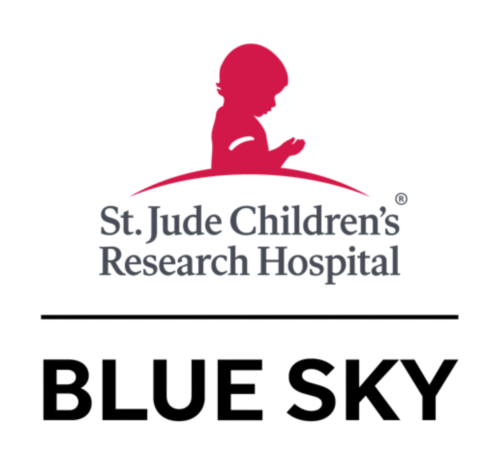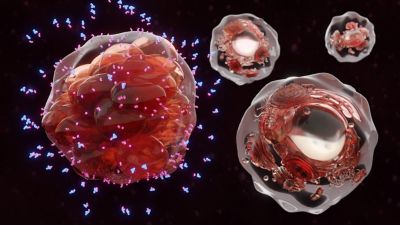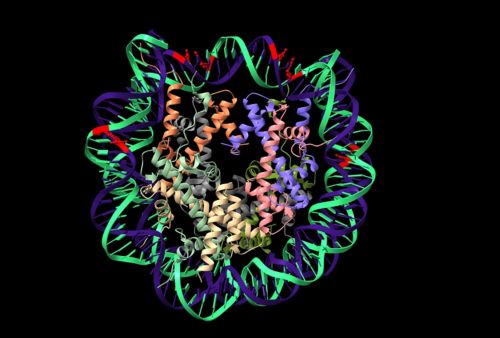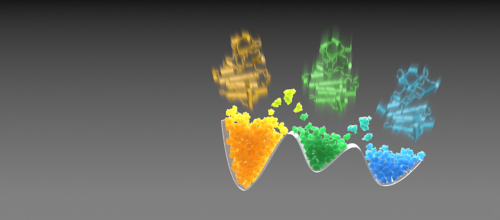St. Jude Family of Websites
Explore our cutting edge research, world-class patient care, career opportunities and more.
St. Jude Children's Research Hospital Home

- Fundraising
St. Jude Family of Websites
Explore our cutting edge research, world-class patient care, career opportunities and more.
St. Jude Children's Research Hospital Home

- Fundraising
Bold projects. Endless possibilities.
At St. Jude, we are guided by a unified plan that outlines bold strategies for the future. But as soon as one plan in finalized, technologies evolve, opportunities arise, or priorities expand. Our robust blue-sky process allows St. Jude to seize these emerging opportunities and nimbly pursue them. The blue-sky process challenges faculty and staff to explore bold new ideas that have the potential to transform science, medicine, and our institution. The process also fosters collaboration and the creation of teams that cut across traditional department and discipline lines to bring together individuals who can address a problem from multiple points of view.
All faculty and staff members can submit proposals that extend beyond the current strategic plan, have the potential for game-changing impact, and establish a unique leadership position for St. Jude. Our blue-sky projects amplify the strengths of the hospital’s strategic plan – allowing St. Jude to accelerate mission-critical objectives and test novel scientific and clinical approaches.
The sky’s the limit.

iTARGETS: Immuno-oncology target Identification via systems immunology
Goal: Identify and translate innovative targets in immuno-oncology, ultimately enabling and advancing curative therapies for pediatric cancers and other catastrophic diseases.
Impact: This project will build a transformative model for translating data-driven discoveries in silico to preclinical validations at the bench and then to early clinical trials at the bedside by bridging immunology, systems biology, cancer biology, preclinical modeling, and clinical investigation.
Hongbo Chi, PhD
Jiyang Yu, PhD
Terrence Geiger, MD, PhD
Stephen Gottschalk, MD


COMET: Solid tumor
COmprehensive
METhylation
database
Goal: Develop the definitive global database of pediatric solid tumor DNA methylation and copy number profiles using the Illumina Infinium 850K array.
Impact: In addition to being the largest and most comprehensive pediatric solid tumor epigenetic reference dataset in the world, the COMET database will provide another tool to stratify patients on clinical trials, to more effectively classify difficult cases and to accelerate basic science on the origins of pediatric solid tumors.
Michael Dyer, PhD
COMET Teams
Seeing the invisible in protein kinases
Goal: Use ultra-high field NMR to detect and structurally characterize distinct conformational states in the protein kinome and dissect mechanisms underpinning regulation, drug-resistance, and disease-causing mutations.
Impact: Understanding the diverse set of inactive conformational states among kinases is critical for understanding their regulatory mechanisms and predicting the effect of mutations on structure and function. This project will transform efforts to decipher the molecular and genetic landscape of the human kinome and facilitate improved drug discovery opportunities.


TIRTL: Tracking the Immune Repertoire of Tumor Lymphocytes
Goal: Generate, store and analyze immune receptor repertoire data from pediatric oncology and hematology patients that would help improve the efficiency of protocols and the development of cancer immune therapies.
Impact: TIRTL will generate a resource that tracks and improves the efficiency of currently used protocols and design novel cancer immunotherapies. While the technology and expertise to implement the individual pieces of this project already exist within St. Jude, additional coordination and investment will be used to implement sample processing, library preparation, and robust data processing and analytical pipelines. This will grant St. Jude the potential to become one of the largest repositories of immune receptor repertoire data in the world, with immediate implications for improved understanding of pediatric tumor microenvironments and a chance to rapidly discover and implement new diagnostics and therapies.
Paul Thomas, PhD
Mikhail Pogorelyy, PhD
St. Jude Historical Archive
Goal: Create a uniform approach to collecting, preserving and documenting the institution's past and legacy by cataloging its scientific research advancements, clinical care innovations, biomedical education and training, global outreach and its forward-thinking and inclusive culture.
Impact: The archive will contribute to accurately sharing the story of the institution with employees, media, historians, and other outside interested parties. The archive staff will curate and manage archival, manuscript, audiovisual, electronic, print and object collections related to St. Jude and the research, treatment and prevention of pediatric catastrophic diseases, as well as collaborate with other archivists in the area and biomedical industry. In addition, the archive will document the careers and activities of prominent faculty, staff and alumni of St. Jude.
Robert Britton
Elizabeth Whittington


GEMINI: Genomic Medicine Initiative
Goal: Bring innovative precision medicine approaches into the clinic to treat patients with neurological disorders
Impact: Developing therapeutics for the population of children with ultrarare diseases is not considered commercially viable and thus lies outside the scope of traditional pharmaceutical companies. GEMINI aims to bring innovative precision medicine approaches into the clinic to treat patients with neurological disorders as part of the Pediatric Translational Neuroscience Initiative (PTNI), thus establishing St. Jude as a foundational leader in addressing this critical unmet need for catastrophic pediatric neurological diseases.
Richard Finkel, MD
Peter McKinnon, PhD
Kristin Stephenson, MHA, JD
J. Paul Taylor, MD, PhD
DIVIA: Diagnostic Innovations using Value-based Implementation models to Increase Access
Goal: Assess the potential of a molecular diagnostic platform that can be used globally for children with cancer to improve clinical outcomes worldwide.
Impact: Nearly 50% of children who develop cancer in low- and middle-income countries are never diagnosed and many more are incorrectly diagnosed and, as a result, receive the wrong therapy. DIVIA will assess the potential of a molecular diagnostic platform that can be used globally for children with cancer to improve clinical outcomes worldwide.
Nickhill Bhakta, MD
Charles Mullighan, MBBS, MD
Carlos Rodriguez-Galindo, MD
David Ellison, MD, PhD
Gang Wu, PhD

Additional Blue-Sky Initiatives:
- Center for Modeling Pediatric Disease
- Family Commons
- Global Hemophilia Gene Therapy Trial
- Global Initiative for Childhood Cancer
- HPV Cancer Prevention Program
- Living Well Health & Wellness Center
- PARADIGM: Partnership to Advance the Development of Individualized Genomic Medicines
- Pediatric Translational Neuroscience Initiative
- St. Jude Cloud Expansion
- Transition Oncology Program